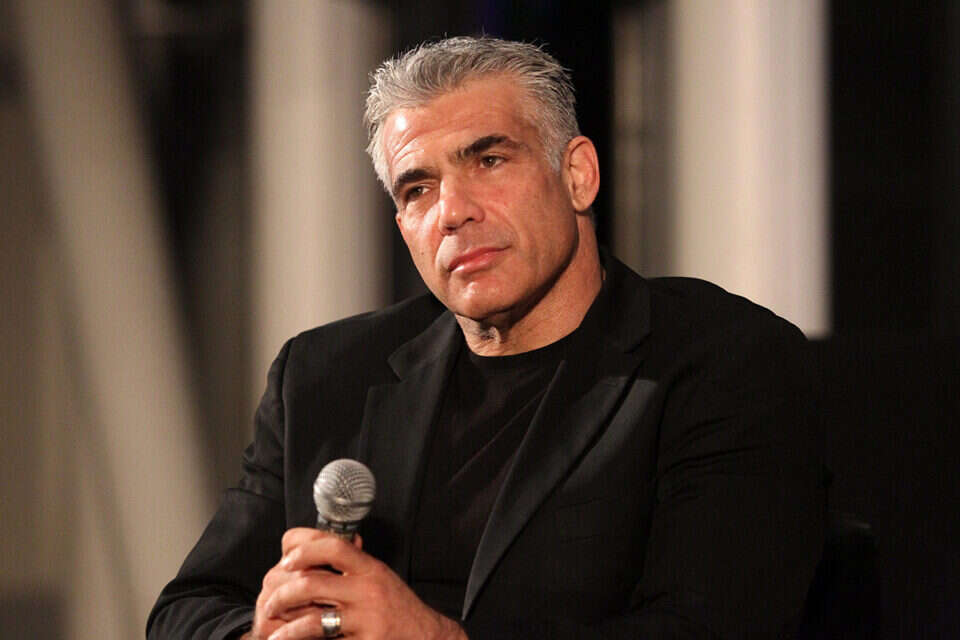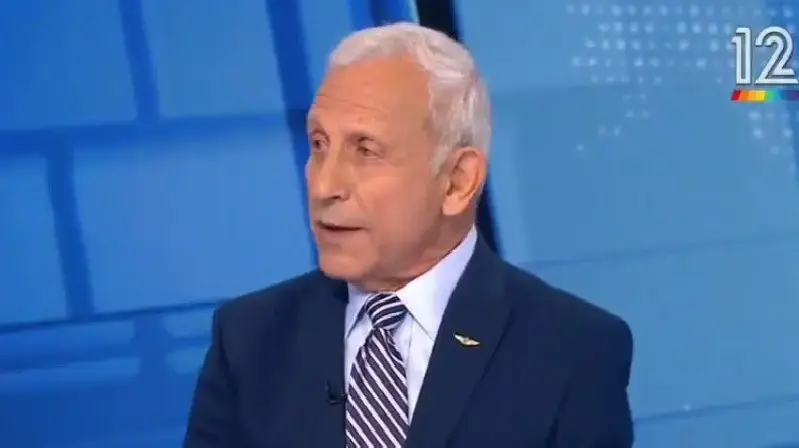Lapid's first test: After the deputy prime minister becomes acting prime minister and serves as the caretaker prime minister, his first test will be a visit to Biden, in light of disagreements with the US over the status of Jerusalem and the nuclear issue.
After the Biden test, Lapid will enter the election campaign with all his might, where he will have a difficult challenge: to bring the center-left voters "home" to a future.
It is estimated that through his role, Lapid will try to win the trust of all members of the center-left, who until now were reluctant to lead and did not give him the number of seats he gave to parties that ran against Netanyahu such as Tzipi Livni, Yitzhak Herzog and Bnei Gantz.
Photo: Knesset Channel
"Where's the money?"
As early as 2010, Yair Lapid's name began to appear, so he presents Ulpan Shishi and has a column in Yedioth Ahronoth's 7 Days magazine, as someone who intends to enter politics.
Lapid then denied his intention and even made it clear to his managers at the news company that if he decided to do so, he would give six months' notice beforehand.
In January 2012 he finally decided and announced his entry into politics, he did so through his regular column in "7 Days" in an article explaining his decision and the main agenda he intends to represent, under the heading "Where is the money?".
Three months later, in April, Lapid registered his party "Yesh Atid - led by Yair Lapid", and stated in its bylaws that the party's chairman could not be replaced at least until the end of the 20th Knesset's term, a date that was extended several more times. Elections have been held for the party's chairmanship from the day it was founded until today.
Lapid called his party a "center party," yet on key issues such as government and democracy, political processes and foreign relations, there is a future as a left-wing party.
Lapid currently heads the bloc of the left-wing camp in Israel, and is a candidate for prime minister on his behalf.
Yair Lapid // Photo: Gideon Markovich,
In January 2013, he was first elected to the Knesset at the head of the Yesh Atid party, which received 19 seats.
Thanks to his "brotherhood" and the chairman of the Jewish House, Naftali Bennett, who was also elected to the Knesset for the first time at the time, the two entered a coalition led by Netanyahu.
Despite his well-known question in his entry into politics "Where is the money?", Lapid refused to be appointed finance minister and demanded the foreign portfolio.
It was only after it was made clear to him that his refusal was causing him political and image damage that he was forced to agree to be appointed Minister of Finance.
One of the things that bothered him was a sentence he said during an interview while still submitting his personal show on Channel 2 that he did not understand a thing and a half about economics.
The boycott of the ultra-Orthodox
Lapid refused to join the ultra-Orthodox factions in the coalition and forced Netanyahu to leave them in the opposition against his will.
Lapid did this after rejecting media calls demanding that he try to form a government through the Arab parties, which would block Netanyahu.
Lapid denied this and said he would not form a government "with the Zoebiz."
He added that "Netanyahu won, and the people's decision must be respected."
During his tenure, St. in the ultra-Orthodox representatives is quite a bit above the Knesset podium and in interviews in the media.
As Minister of Finance, Lapid received considerable criticism for his lack of professionalism and for failing to manage the state coffers.
Towards the end of his tenure in the ministry, he tried with all his might to promote one of the most grandiose and failed plans to reduce housing prices, the zero VAT plan, which received strong criticism from senior economists in Israel and led to the resignation of the firm's chief economist Michael Israel.
From a political point of view, Lapid was revealed as a leftist for everything during that term, when he repeatedly demanded that Netanyahu not approve construction in the settlements.
He did this together with the movement's chairman Tzipi Livni, who was also a minister in the government, and both of them together constituted the "left wing" in it. Both were fired together by Netanyahu on December 4, 2014.
After the 2015 elections, Lapid refused to negotiate with Netanyahu to join his government, and remained an member of the opposition. His party then weakened to 11 seats. His party was fined for using the database of the Holocaust survivors' organization, which Lapid received, at his request, from the organization's chairman, Colette Avital.
Even as the deputy prime minister in the current Knesset, Lapid was revealed as someone who does not particularly like working.
He was regularly absent from the corona cabinet hearings, and continued to be absent even after public criticism was leveled at him.
Lapid serves as a key witness on behalf of the prosecution in the Netanyahu trial.
Blue, white and disassembled
In the run-up to the 21st Knesset elections in 2019, and after lengthy and lengthy negotiations, Lapid signed an agreement with Bnei Gantz, chairman of the Israel Resilience Party, on a joint run in the elections under the "blue and white" list.
They were later joined by the chairman of the TLM party, Boogie Ya'alon, and the former chief of staff, Gabi Ashkenazi. The party won 33 seats in the elections. Following Ganz's decision to negotiate with Netanyahu, Blue and White disbanded and Lapid became the chairman of the opposition.
During the time that Netanyahu's replacement government served, Gantz did much to sharply attack Netanyahu.
He called it "detached" and "corrupt", opposed the principle of exchanges, the partial Norwegian law, which he called the "Jobs Law", to the high number of ministers, and argued that the government was illegitimate when it passed the corona laws.
In the elections to the 24th Knesset, Yesh Atid achieved 17 seats and was the second largest party after the Likud.
After Netanyahu's failure to form a coalition, Lapid received the mandate from the president.
On the last day at his disposal, he informed the president that he had succeeded in forming a government in which Yemin, Yesh Atid, Yisrael Beiteinu, Labor, Blue and White, Meretz and Ra'am are partners. Following the agreements, since the dissolution of the Knesset was by agreement, Bennett agreed that Lapid would be appointed prime minister of the transition until a new government is formed.
Were we wrong?
Fixed!
If you found an error in the article, we would love for you to share it with us









